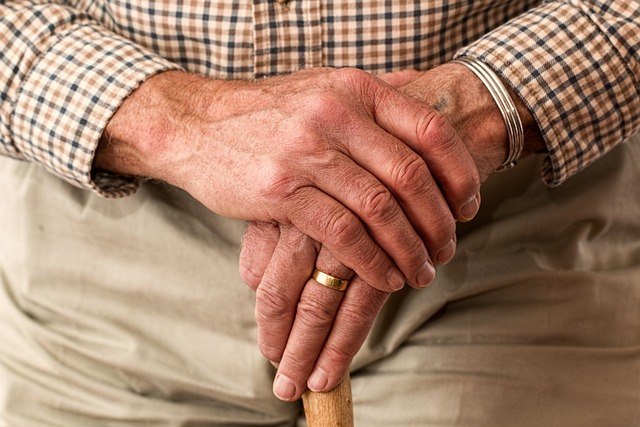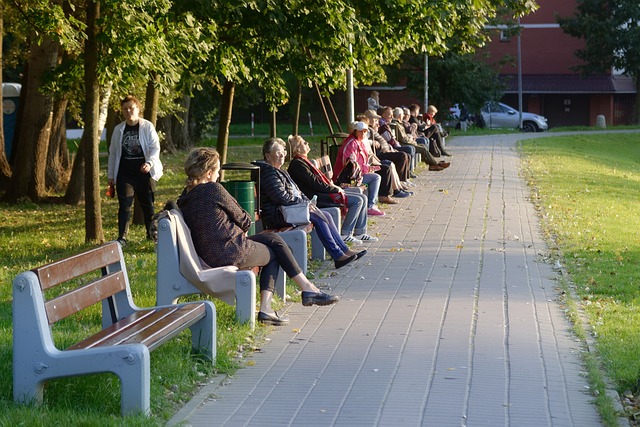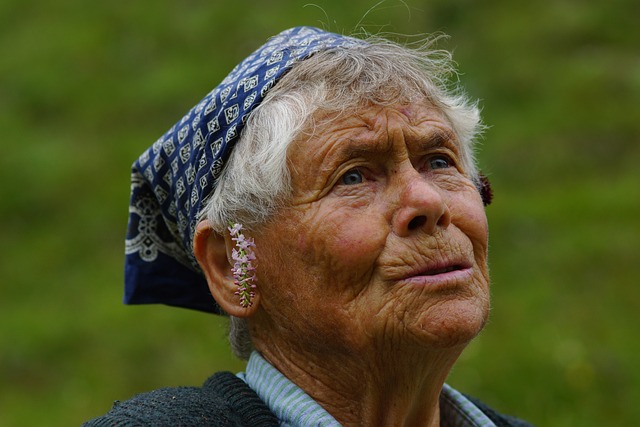Elderly Companion Services represent a modern, technology-driven approach to senior care that combines continuous health monitoring with emotional and practical support for the elderly. These services leverage advanced technologies like wearable devices, AI, and telehealth to provide real-time health data, facilitate communication with caregivers or family members, and offer personalized health management advice. They address critical issues such as loneliness, safety, and health maintenance by using smart sensor systems that detect potential health problems early, potentially reducing hospital readmissions and promoting a healthier lifestyle. The integration of these technologies with human interaction ensures seniors receive tailored care that respects their preferences and needs while fostering independence and meaningful connections. This holistic approach to elderly care enhances the quality of life for seniors by enabling them to age in place, with reassurance and support from family members and caregivers alike. The evolution of these services underscores a commitment to dignified, compassionate, and innovative care solutions for the aging population.
title: “Embracing Technology for Compassionate Elderly Companion Services and In-Home Health Monitoring”
As the global population ages, the need for compassionate elderly companion services and robust in-home health monitoring solutions becomes increasingly paramount. This article explores how these integral services not only enhance senior wellness but also provide a vital lifeline for the aging. By leveraging advanced technology, we delve into the transformative role of elderly companion services that go beyond mere assistance, fostering independence and social interaction for seniors in the comfort of their own homes. Through case studies highlighting successful implementations, we witness firsthand the profound impact these innovations can have on the lives of the elderly, ensuring they receive the care and companionship they deserve.
- Enhancing Senior Wellness through Elderly Companion Services and In-Home Health Monitoring
- The Role of Advanced Technology in Providing Elderly Companion Services
- Case Studies: Successful Implementation of In-Home Health Monitoring for the Elderly
Enhancing Senior Wellness through Elderly Companion Services and In-Home Health Monitoring

In recent years, elderly companion services have emerged as a vital component in the realm of senior care, offering more than just companionship but also contributing significantly to the enhancement of wellness for the elderly. These services provide a supportive presence that can alleviate loneliness, a common issue among seniors, while simultaneously ensuring their safety and health are monitored. With advanced technologies integrated into in-home health monitoring systems, these services enable real-time tracking of vital signs, medication adherence, and daily activities, offering peace of mind to both seniors and their families. The proactive approach of these systems in detecting potential health issues can lead to timely interventions, potentially preventing hospital readmissions and fostering a healthier lifestyle for the elderly.
Furthermore, companion services are tailored to meet the unique needs of each individual, promoting independence and personal connection. Trained companions not only offer emotional support but also assist with everyday tasks, allowing seniors to maintain their dignity and autonomy in familiar surroundings. The integration of these services with in-home health monitoring systems creates a comprehensive care plan that is responsive to the changing needs of older adults. This symbiotic relationship between human interaction and technological oversight ensures a holistic approach to senior wellness, catering to both physical and emotional aspects of health, thereby enhancing the quality of life for seniors in their own homes.
The Role of Advanced Technology in Providing Elderly Companion Services

The integration of advanced technology into elderly companion services has revolutionized the way seniors receive care and companionship within the comfort of their own homes. These sophisticated systems enable real-time monitoring of an individual’s health, providing vital data to healthcare providers for timely interventions. Wearable devices equipped with sensors can detect anomalies in vital signs, alerting professionals to potential issues before they escalate. Moreover, these technologies often include two-way communication features that allow seniors to interact with caregivers or family members, fostering a sense of companionship and reducing feelings of isolation. The use of artificial intelligence and machine learning algorithms enables the system to learn from patterns in the elderly’s routines and behaviors, offering personalized recommendations for activities and health management. This not only supports the elderly in maintaining their independence but also ensures that they have access to a consistent and empathetic companion service tailored to their unique needs.
Furthermore, the role of telehealth in elderly companion services is paramount, as it allows healthcare providers to offer consultations and assessments remotely. This approach minimizes the need for in-person visits, which can be challenging for the elderly due to mobility issues or living in remote areas. The integration of virtual reality and augmented reality technologies also opens up opportunities for immersive experiences, such as virtual walks through nature or engaging in social activities with peers, thereby enhancing the mental and emotional well-being of seniors. The continuous advancements in technology dedicated to elderly companion services underscore a commitment to improving the quality of life for the aging population, ensuring they receive the care and companionship they need in the most personal and dignified way possible.
Case Studies: Successful Implementation of In-Home Health Monitoring for the Elderly

In-home health monitoring has become a cornerstone of elderly care, particularly with the rise of companion services that seamlessly integrate technology into daily life. A notable case study illustrates this integration in action through the implementation of a smart sensor system in the homes of elderly individuals. This system non-invasively monitors vital signs and detects potential health issues by utilizing a network of sensors placed strategically throughout the living space. The data collected is then transmitted to healthcare providers in real time, enabling prompt and informed interventions when necessary. For instance, one study followed the case of an 80-year-old woman who had been using such a system for six months. The results were striking: she experienced a significant reduction in hospital readmissions, her medication adherence improved, and her overall well-being was enhanced due to the reassurance of continuous monitoring. This case underscores the effectiveness of elderly companion services in supporting independent living while providing peace of mind for both the seniors and their families.
Another successful implementation occurred in a community-based program designed for seniors living alone. The program integrated a comprehensive suite of health monitoring technologies with human support from trained companions. This approach allowed for personalized care plans that were adaptable to each individual’s needs, ensuring that the elderly received not only medical oversight but also social interaction, which is often as critical for their health and happiness. The success of this program was measured by the improvement in the participants’ quality of life, as well as the reduction in emergency healthcare visits. These outcomes highlight the potential of companion services to revolutionize in-home health monitoring for the elderly, offering a blend of technological innovation and compassionate care.
In conclusion, in-home health monitoring assistance represents a significant leap forward in elderly companion services, bridging the gap between independent living and necessary care. The integration of advanced technology has proven to be a boon for seniors, offering both health monitoring and companionship, thus enhancing their overall wellness. The case studies presented serve as testament to the effectiveness of such systems, demonstrating how they can be tailored to meet individual needs, ensuring a personalized approach to elder care. As our population ages, these services become increasingly vital, not just for the health and safety of seniors but also for providing peace of mind to their loved ones. Elderly companion services, coupled with in-home health monitoring technology, offer a promising future for older adults, allowing them to age with dignity and comfort within the familiar confines of their own homes.




